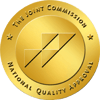Delirium tremens (DTs) is a severe and potentially life-threatening condition. It occurs during alcohol withdrawal in individuals with alcohol dependence. This condition requires immediate medical attention as it can lead to serious complications or even death. In this article, we explore what delirium tremens is, its symptoms, risk factors, and treatment options.-Jan-14-2025-04-43-16-5757-PM.png?width=672&height=480&name=(672%20x%20480%20px)-Jan-14-2025-04-43-16-5757-PM.png)
Questions Answered:
- What is Delirium Tremens?
- When Do Delirium Tremens Start?
- How is Delirium Tremens Diagnosed?
What is Delirium Tremens?
Severe alcohol withdrawal refers to the intense and potentially dangerous symptoms that can occur when someone who is physically dependent on alcohol suddenly stops drinking or significantly reduces their intake.
Delirium tremens is a severe form of alcohol withdrawal. DT’s develop in individuals who suddenly stop heavy drinking after prolonged alcohol intake.
DTs are part of alcohol withdrawal syndrome, which includes a range of symptoms triggered by the body’s adjustment to the absence of alcohol. This condition is a medical emergency and demands prompt treatment.
When Do Delirium Tremens Start?
Delirium tremens typically begin 48 to 96 hours after the last drink. However, in some cases, symptoms can appear as early as 24 hours or as late as 10 days.
The timing can vary based on factors such as the individual’s drinking history, overall health, and the presence of other medical conditions. Those with long-term alcohol dependence are at higher risk.
Symptoms of Delirium Tremens
Recognizing the symptoms of delirium tremens (DTs) is critical, as it is a severe and potentially life-threatening complication of alcohol withdrawal. Some of these delirium tremens symptoms can escalate quickly without proper medical attention.
Symptoms often include:
- Severe confusion and disorientation
- Visual or auditory hallucinations
- Tremors and shaking
- Autonomic hyperactivity, including sweating and increased heart rate
- High blood pressure
- Agitation and irritability
- Fever and dehydration
- Withdrawal seizures
Early identification allows for prompt treatment, reducing the risk of serious complications such as cardiac arrest or respiratory failure. Awareness of these symptoms can save lives, emphasizing the need for medical supervision during alcohol withdrawal.
Alcohol doesn’t have to control your story.
Reclaim your life today.
The Dangers of Delirium Tremens
Delirium tremens is one of the most dangerous complications of alcohol withdrawal syndrome. It is a medical emergency due to its life-threatening nature. Complications may include:
- Heart problems: DTs can cause rapid heart rate, irregular heartbeat, and high blood pressure, which can strain the cardiovascular system.
- Respiratory problems: Difficulty breathing and pneumonia are possible complications.
- Kidney failure: Dehydration and electrolyte imbalances can lead to kidney dysfunction.
- Liver damage: Alcohol withdrawal can exacerbate liver damage in individuals with alcohol-related liver disease.
- Suicidal thoughts: The psychological distress associated with DTs can increase the risk of suicidal ideation and attempts.
If left untreated, the mortality rate for DTs can increase up to 37%. Early medical intervention significantly reduces this risk.
Causes and Risk Factors of Delirium Tremens
Delirium tremens occur due to sudden changes in the central nervous system after stopping alcohol intake. Chronic alcohol consumption disrupts the brain’s neurotransmitters. When alcohol is removed, the nervous system becomes overactive, leading to autonomic hyperactivity and severe symptoms.
Common risk factors of DTs include:
- Heavy alcohol consumption: Individuals who consume large amounts of alcohol regularly are at a higher risk.
- Chronic alcohol abuse: Long-term alcohol dependence can lead to physiological changes that make the body more susceptible to withdrawal symptoms.
- Rapid alcohol cessation: Abruptly stopping drinking, especially after a period of heavy consumption, can trigger DTs.
- Previous history of DTs: Individuals who have experienced DTs in the past are more likely to have a recurrence.
- Medical comorbidities: Underlying health conditions, such as liver disease or heart problems, can increase the risk of DTs.
How is Delirium Tremens Diagnosed?
Diagnosis of DTs begins with a detailed physical examination and patient history. Healthcare providers assess symptoms and risk factors to differentiate DTs from other conditions. Common diagnostic steps include:
- Checking vital signs like blood pressure, heart rate, and temperature.
- Reviewing alcohol use history and patterns of alcohol intake.
- Performing tests to rule out other medical conditions.
- Monitoring for withdrawal seizures and autonomic hyperactivity.
Hope and healing are within reach.
Overcome alcohol addiction with the right support.
Treatment for Delirium Tremens
Delirium tremens treatment requires immediate hospitalization due to its life-threatening nature. Medical professionals closely monitor patients and provide intensive care. The primary goal is to stabilize the patient and manage symptoms.
Delirium tremens medications such as benzodiazepines are commonly used to calm the nervous system and prevent withdrawal seizures. Intravenous fluids help address dehydration and electrolyte imbalances.
Nutritional support, including thiamine and other vitamins, is also essential to prevent complications like Wernicke’s encephalopathy. In severe cases, additional medications may be necessary to manage agitation or hallucinations.
Early treatment significantly improves outcomes and reduces the mortality rate associated with DTs.
Preventing Delirium Tremens
Prevention of DTs starts with effective management of alcohol withdrawal syndrome. Key strategies include:
- Supervised Detox Programs: Medical professionals can manage symptoms and prevent severe complications.
- Reducing Alcohol Intake Gradually: Sudden cessation can trigger DTs in heavy drinkers.
- Early Intervention: Seeking help at the first sign of alcohol withdrawal can prevent escalation.
- Treating Alcohol Use Disorder: Long-term solutions involve addressing the root cause of alcohol dependence through therapy and support groups.
Choose health, choose you.
Begin your recovery today.
Managing Alcohol Withdrawal
Alcohol withdrawal can be a challenging and dangerous process, particularly for those with severe alcohol use disorder. Understanding the stages of withdrawal and implementing effective management strategies can significantly reduce the risk of complications, such as delirium tremens.
Alcohol withdrawal typically occurs in three stages:
Early Withdrawal
This stage begins within a few hours of the last drink and can last up to 24 hours. Symptoms include anxiety, irritability, tremors, sweating, and insomnia.
Acute Withdrawal
This stage usually starts 12-24 hours after the last drink and can last up to 48-72 hours. Symptoms include more severe tremors, seizures, hallucinations, and increased heart rate and blood pressure.
Late Withdrawal
This stage can begin 48-72 hours after the last drink and can last for several weeks. Symptoms include anxiety, depression, fatigue, and difficulty sleeping.
The most effective way to manage alcohol withdrawal is under the supervision of medical professionals in a detoxification facility. Medical detox programs provide a safe and controlled environment to monitor vital signs and administer medications to alleviate symptoms and prevent complications.
Cognitive-behavioral therapy (CBT) and other forms of therapy can also help people develop coping strategies and address underlying psychological issues that may contribute to alcohol use disorder.
Long-Term Outlook for People with Delirium Tremens
Surviving delirium tremens is possible with timely medical care. However, recovery requires addressing alcohol use disorder to prevent future episodes. Treatment options for long-term recovery include:
- Rehabilitation Programs: Comprehensive care to treat alcohol dependence.
- Therapy and Counseling: Helps individuals understand triggers and develop coping strategies.
- Support Groups: Communities like Alcoholics Anonymous provide ongoing support.
- Medical Follow-Up: Regular check-ups to monitor health and prevent relapse.
Recovery from delirium tremens and alcohol use disorder is challenging but achievable. Making lifestyle changes and seeking professional help can improve the quality of life. Reducing alcohol intake and managing underlying medical conditions are essential steps. With the right support, people can overcome alcohol dependence and lead healthier lives.
Soberman’s Estate is a premier men-only treatment center in Arizona, focused on helping adult men overcome drug and alcohol addiction. Our experienced team provides a supportive, tranquil environment where men can concentrate on their recovery from substance use disorders and related challenges.
If you or a loved one is struggling with substance use, taking the step to seek help can be life-changing. Contact our Admissions Director for a free consultation and begin the journey to healing. Call (480) 351-6749 or email info@SobermansEstate.com.
Freedom begins with a single decision.
Seek help and start your journey today.





